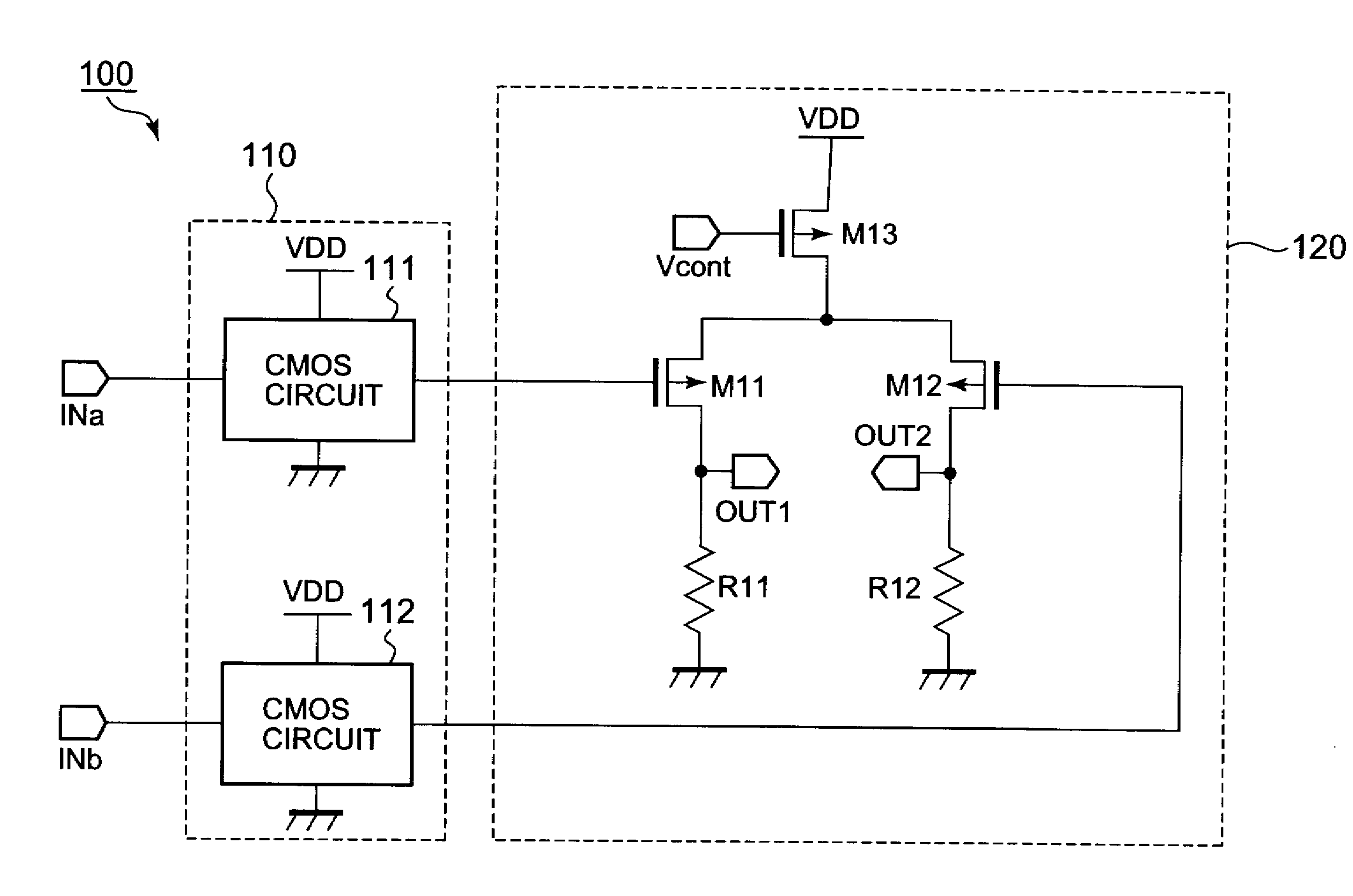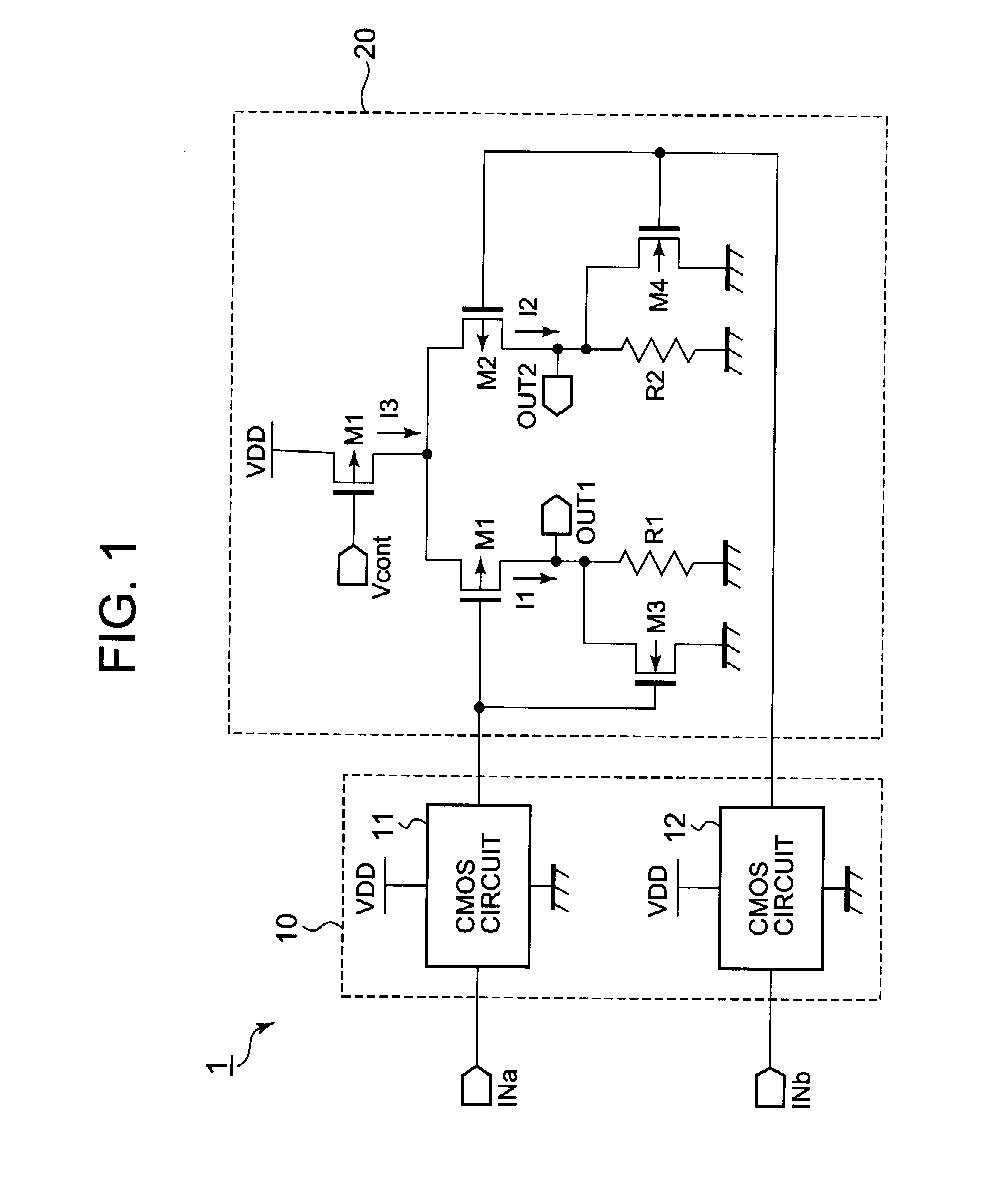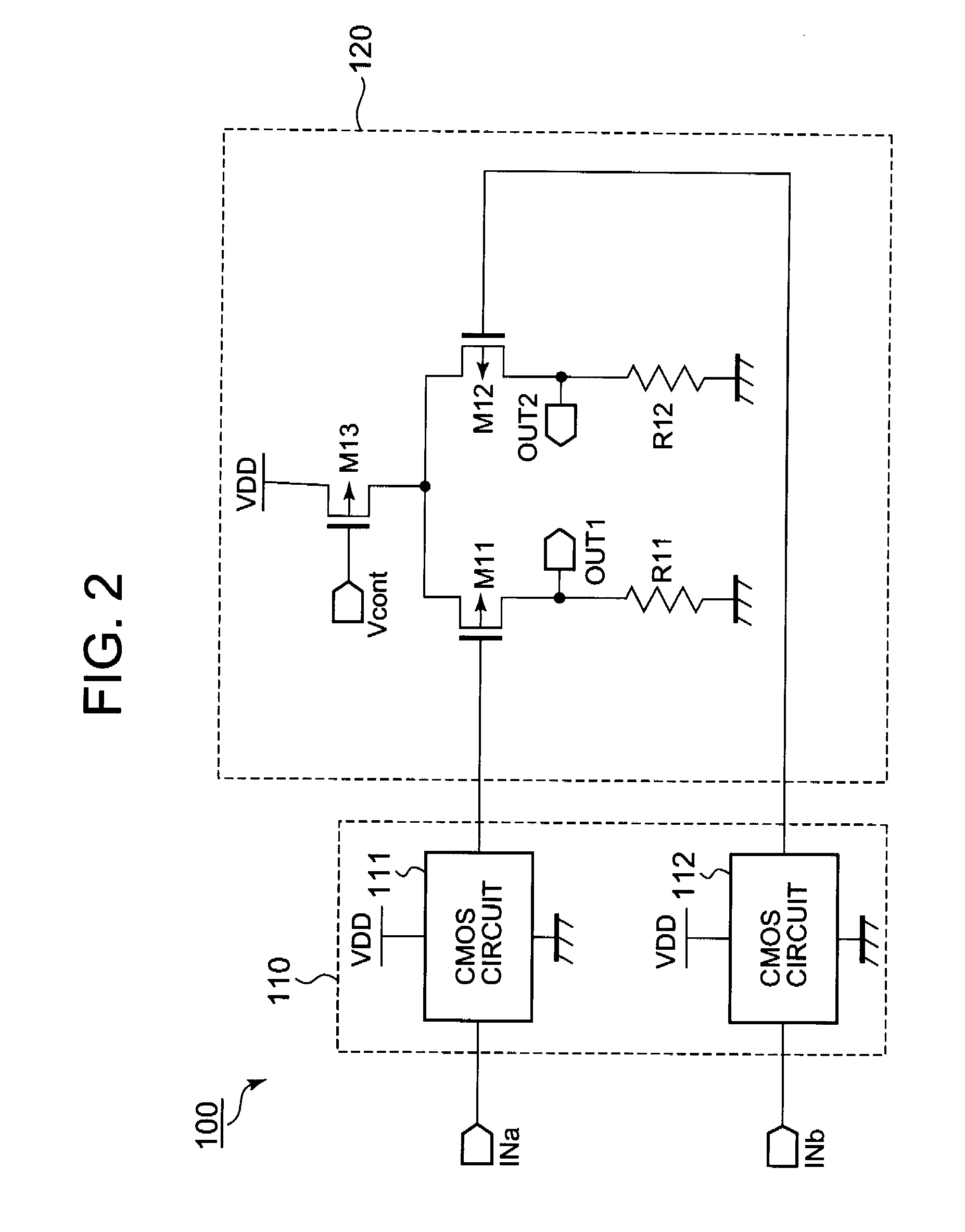Cml circuit
a circuit and circuit technology, applied in the field of circuits, can solve the problems of power consumption rise when generating high frequency differential signals, disturbance of the fast operation of the ecl circuit, and inability to input signals with large amplitudes, etc., to achieve the effect of shortening the time of rising or falling and fast operation
- Summary
- Abstract
- Description
- Claims
- Application Information
AI Technical Summary
Benefits of technology
Problems solved by technology
Method used
Image
Examples
first embodiment
[0021]Hereunder, there will be described an embodiment of the present invention with reference to the accompanying drawings. FIG. 1 shows a circuit diagram of a CML circuit 1 in this first embodiment. The CML circuit 1 is driven according to a ground potential GND supplied from a first power supply terminal (e.g., a ground terminal) and a power supply potential VDD supplied from a second power supply terminal (e.g., a power supply terminal).
[0022]As shown in FIG. 1, the CML circuit 1 includes an internal signal generation circuit 10 and an amplification circuit 20. The internal signal generation circuit 10 includes CMOS circuits 11 and 12. Each of the CMOS circuits 11 and 12 is driven according to the power supply potential VDD and the ground potential GND and outputs a signal having an amplitude to be ranged approximately from a ground potential to a power supply potential according to a signal inputted from corresponding one of the input terminals INa and INb. The output signal of...
PUM
 Login to View More
Login to View More Abstract
Description
Claims
Application Information
 Login to View More
Login to View More - R&D
- Intellectual Property
- Life Sciences
- Materials
- Tech Scout
- Unparalleled Data Quality
- Higher Quality Content
- 60% Fewer Hallucinations
Browse by: Latest US Patents, China's latest patents, Technical Efficacy Thesaurus, Application Domain, Technology Topic, Popular Technical Reports.
© 2025 PatSnap. All rights reserved.Legal|Privacy policy|Modern Slavery Act Transparency Statement|Sitemap|About US| Contact US: help@patsnap.com



